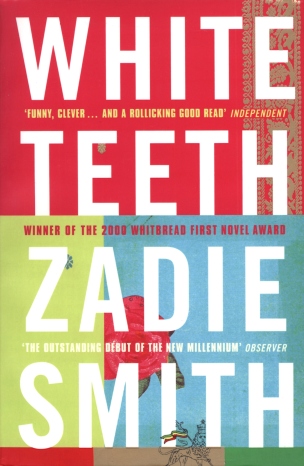
Beautiful, credible, vivid glimpse of the future.
565 pages, ★★★★★
Originally posted at Dark Matter Fanzine
2312 is a science fiction story of love, politics, and interplanetary terrorism. While the plot is interesting in itself, the futuristic setting in which the story takes place is definitely the book’s main selling point.
This book is set in the year 2312 at a time when humans have already colonized Mars, Venus, and many asteroids and moons in our solar system. Most of them were terraformed before being settled (terraforming is a process of drastic geoengineering that involves removing entire atmospheres, changing temperatures by hundreds of degrees Kelvin or manipulating collisions with other celestial bodies to import necessary resources). Humans travel in hollowed-out asteroids called ‘terraria’ that spin to simulate gravity on their inside walls. Venus now has a giant sunshield, Mars has people living in underground caves, and the inhabitants of Mercury travel perpetually westwards to keep in line with the temperate crepuscule (and thus avoid deadly extremes of hot and cold). Mercurian ‘sunwalkers’ do this on foot, while Mercurian cities move westward on rails that circumnavigate the entire planet.
Genders are diverse in 2312. Hormone interventions before and after birth give rise to about ten different genders between between ‘male’ and ‘female’. The book implies that these intermediate genders are more advantageous than either of the traditional sexes.
Quantum computing has advanced to the point that people can wear quantum-classical hybrid computers as implants or wristwatches called ‘qubes’. Qubes can listen, speak out loud, analyse vast amounts of information and serve as a perfect memory aid for the wearer. They can’t, however, transmit signals to each other. Qubes are too personal for that—they’re used more as implants than as cellphones. I particularly love how the qubes entertain their wearers by playful use of the English language. I’ve learned about exergasia, synathroesmus, anaphora, pretended dubitation, synchoresis, aporia and many more rhetorical devices from the qubes in this book! Qubes might be inhuman in many ways, but they do have their own sense of humour.
Biomedical advances abound. DNA repair, limb regrowth, telomere extensions and wearable pharmacies (controlled by wearable qubes) have increased lifespan to at least 200 years in space. Regular visits to Earth are still necessary, however, for optimum health and longevity. The reasons for this are unknown.
Earth is devastated in this novel. Countries have been decimated into nearly 500 mini-states (and groups of mini-states with varying levels of authority), while China is the only major power. Earth is overpopulated, plagued with poverty and misery, and most progress is stifled by laws, politics and taboos. My favourite criticisms of Earth are that the gravity is “too high” and “nobody looks at the stars”! Protagonist Swan says that gravity is much more comfortable on Mercury and Mars—both are just 0.38 g.
I loved how China was so powerful in this novel. Best of all, heroic protagonist Swan Er Hong, who is both male and female, and capable of interplanetary travel at over 100 years old, has an unmistakably Chinese name. Venus is inhabited by Chinese descendents and Venusian streets are cluttered with slogans written in Chinese characters. On Earth, China has been strong for “most of history” except for the “brief period of subjugation to Europe” (referring to the period between 1850 and 1949). As a massive fan of Chinese culture, all these subtle details make me proud. Even the title of this book, 2312, makes a subtle reference to China’s power: “GB2312” was the code name for the first official set of Chinese characters used on computer systems worldwide in 1980.
The notion in 2312 that space-dwellers should return to Earth every few years to recuperate (called “Gaian replenishment”) is an ironic one. Reading this, I immediately thought of overseas Chinese who return to China to ‘recuperate’ every so often—despite the crowds, the pollution, and the stress that it causes. The idea of ‘recuperating’ in such a dystopian environment reminded me that just as Earth is an integral part of human nature in 2312, China is an integral part of Chinese people today—however irrational that might seem.
I also loved the mixture of writing styles in this book. The author uses ‘lists’ (descriptive poetry that sets the scene much quicker than prose); ‘extracts’ (snippets of scientific journal abstracts that explain science fiction much quicker than prose); and ‘quantum walks’ (which follow the thought processes of a personal quantum computer called a ‘qube’). In my opinion, these diverse writing styles, which amount to about 10-20% of the book, enrich the story, not distract from it. However, some reviewers disagree. Many of this book’s worst reviews make negative reference to these ‘poetic’ chapters. I love them, though.
The broad range of themes in this book should appeal to a very wide audience. Readers with an appreciation for science fiction and human development may enjoy it more than those without; and readers with the patience and imagination to understand poetry will appreciate the chapters written as ‘lists’, ‘extracts’ or ‘quantum walks’ much more than those without. This is one of few books that I can positively recommend for anyone who enjoys reading. ★★★★★
Finally, the blurb for this book on Goodreads is completely wrong.











